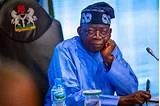
NIGERIA’S MOST CONTROVERSIAL POLITICIANS:
HISTORICAL OVERVIEW
Nigeria’s political landscape has been shaped by numerous figures whose actions have sparked significant debate and controversy. Below is a comprehensive overview of some of the most contentious politicians in Nigeria’s history, including President Bola Ahmed Tinubu. Eyes Of Lagos reports,
- General Sani Abacha (1943–1998)
Sani Abacha, Nigeria’s military head of state from 1993 to 1998, is infamous for his authoritarian rule marked by human rights abuses, political repression, and large-scale corruption. Under his regime, numerous political opponents were imprisoned or executed, and freedom of expression was severely curtailed. Abacha’s government was implicated in the embezzlement of billions of dollars, much of which was stashed in foreign accounts.
- General Ibrahim Babangida (born 1941)
Serving as Nigeria’s military ruler from 1985 to 1993, Ibrahim Babangida’s tenure was marked by economic mismanagement, political instability, and allegations of corruption. He annulled the 1993 presidential elections, widely regarded as the freest and fairest in Nigeria’s history, leading to widespread unrest and setting the stage for Abacha’s subsequent dictatorship.
- Diezani Alison-Madueke (born 1960)
As Nigeria’s Minister of Petroleum Resources from 2010 to 5, Diezani Alison-Madueke was at the center of numerous corruption scandals involving the misappropriation of vast sums of public funds. In 2023, the United States agreed to return $52.88 million in assets linked to her, highlighting the international dimension of her alleged corrupt activities.
- James Ibori (born 1958)
James Ibori, the former governor of Nigeria’s oil-rich Delta State from 1999 to 2007, was convicted in the United Kingdom for laundering an estimated $250 million. His case exemplifies the deep-rooted corruption among Nigeria’s political elite and the challenges in holding them accountable within the country’s judicial system.
- General Yakubu Gowon (born 1934)
Yakubu Gowon led Nigeria from 1966 to 1975, a period that encompassed the Nigerian Civil War (1967–1970). While his leadership during the war preserved Nigeria’s unity, his regime faced criticism for human rights abuses and the mismanagement of oil revenues during the post-war economic boom.
- General Olusegun Obasanjo (born 1937)
Olusegun Obasanjo served as Nigeria’s military head of state from 1976 to 1979 and later as a civilian president from 1999 to 2007. His civilian administration, while credited with some economic reforms, was also marred by allegations of corruption, political patronage, and attempts to manipulate the constitution to extend his tenure.
- General Muhammadu Buhari (born 1942)
Muhammadu Buhari, Nigeria’s military ruler from 1983 to 1985 and later elected president in 2015, has been a polarizing figure. His military regime was known for its draconian decrees, human rights violations, and suppression of dissent. His civilian presidency faced criticism over issues of insecurity, economic downturns, and allegations of nepotism.
- General Murtala Mohammed (1938–1976)
Murtala Mohammed’s brief tenure as Nigeria’s head of state from 1975 until his assassination in 1976 was marked by abrupt and sometimes harsh policies. While he is credited with initiating reforms to tackle corruption and bureaucratic inefficiency, his methods were often seen as autocratic and led to significant political upheaval.
- Nnamdi Azikiwe (1904–1996)
Nnamdi Azikiwe, Nigeria’s first president (1963–1966), played a pivotal role in the country’s independence movement. However, his tenure was marked by political instability, ethnic tensions, and allegations of electoral malpractices, which contributed to the eventual military coup that ended the First Republic.
- Bola Ahmed Tinubu (born 1952)
Bola Ahmed Tinubu, Nigeria’s president since May 2023, has been a significant figure in the country’s political scene. His tenure has been marked by several controversies:
Educational Background: Allegations surfaced regarding the authenticity of Tinubu’s academic credentials. However, investigations, including those by the BBC, found no evidence to support claims of certificate forgery.
Economic Policies: Tinubu’s administration implemented significant economic reforms, such as the removal of fuel subsidies and the liberalization of the naira’s exchange rate. While aimed at stabilizing the economy, these measures led to a sharp increase in living costs, triggering public protests. Reports indicated that these demonstrations were met with severe repression, resulting in numerous arrests and casualties.
Human Rights Concerns: Amnesty International criticized Tinubu’s government for failing to uphold human rights during his initial months in office, highlighting issues like the detention of protesters, including minors. In response to public outcry, Tinubu ordered the release of 29 children who had been facing the death penalty for participating in protests against the rising cost of living.
These individuals, through their actions and policies, have left indelible marks on Nigeria’s political landscape, often with complex legacies that continue to influence the nation’s development and governance.
 Premium News
Premium News